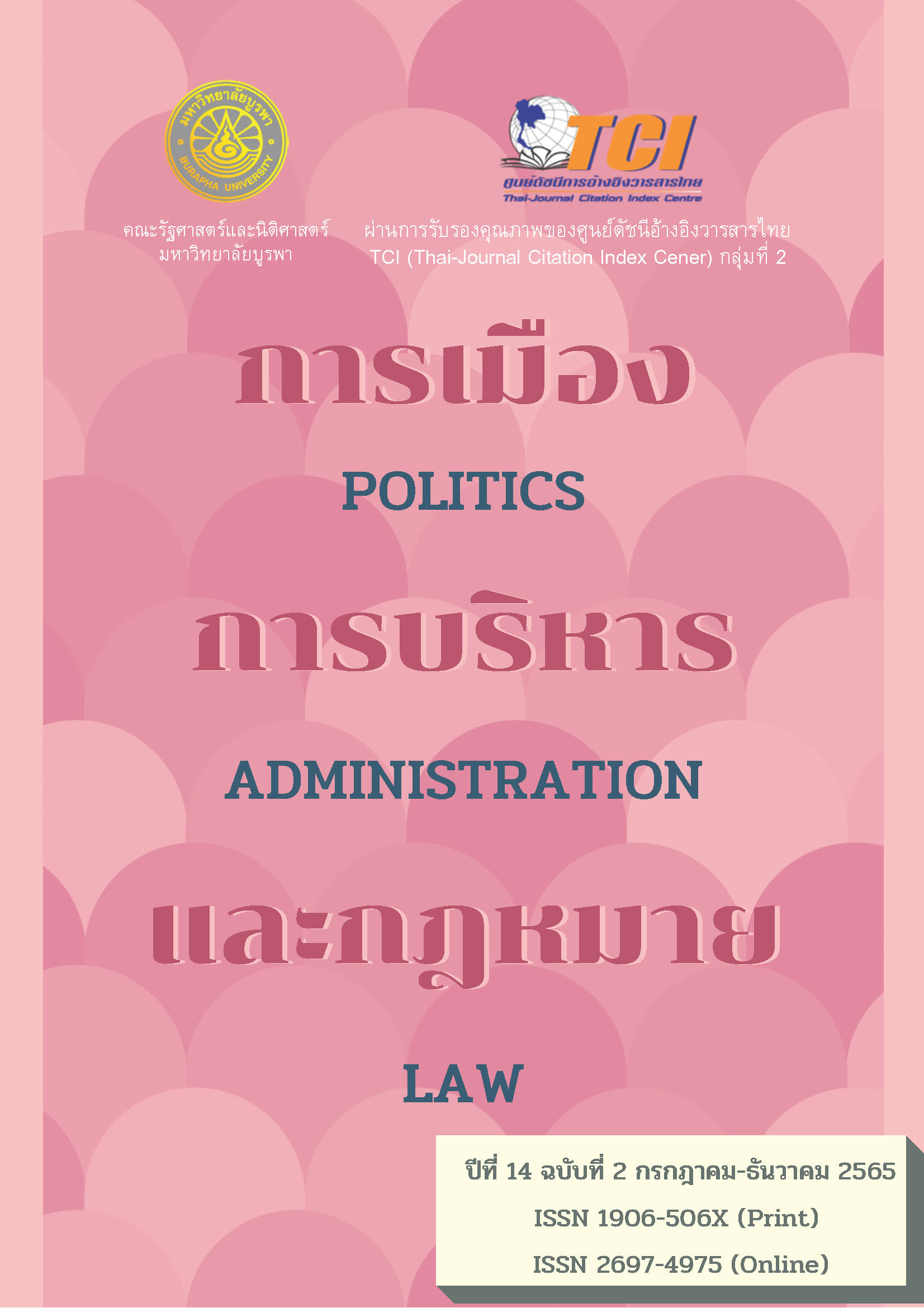The Value Creation in Self-Assets of Freelance Yoga Teachers
Keywords:
Value creation, Self-assets, Freelance yoga teacher, FreelancerAbstract
This research aimed to analyze self-assets, synthesize freelance yoga teachers’ self-assets value creations of freelance yoga teachers. The research was conducted by synthesizing the research conceptual framework from the concept of creating value together with the concept of resource exchange, marketing theory, service business management and human resource development. The study was qualitative research. The informants who gave important information consisted of freelance yoga teachers. The data were collected with in-depth interview, participant and non-participant observation methods and focus group. The data were then synthesized and analyzed with content analysis, and presented with descriptive statement. The results indicated that self-assets of individual freelance yoga teachers included skills, capability, resources used for value creation, goal and the expectation of value creation. The value creation process, associated with independent yoga teachers, yoga business owners and yoga practitioners who participated in different roles in order to mutually create the process of value creation of yoga teaching, consisted of service management and interaction of providing services. Interaction of providing services and creating a space of mutual value creation to achieve the results obtained from value creation consisted of career survival, relationships reciprocation, self-asset increase, value creation accomplishment, value creation fulfillment and self-assets’ value maintenance.
References
กัลยรักษ์ นัยรักษ์เสรี. (2560). Gig Economy: โลกยุคใหม่ของคนทำงาน. วันที่ค้นข้อมูล 14 มีนาคม 2565,เข้าถึงได้จาก https://www.scbeic.com/th/detail/product/4070
พิมพ์ธัญญา ฆ้องเสนาะ. (2561). Gig Economy: ระบบเศรษฐกิจใหม่กับวิถีการทำงานของคนรุ่นใหม่ที่ไม่เหมือนเดิม. สำนักวิชาการ สำนักงานเลขาธิการสภาผู้แทนราษฎร. วันที่ค้นข้อมูล 14 มีนาคม 2565, เข้าถึงได้จาก http://library2.parliament.go.th/ebook/content-issue/2561/hi2561-036.pdf
มาฆฤกษ์ ชูช่วย. (2557). สมรรถนะผู้ประกอบการธุรกิจสปา เพื่อรองรับ AEC: กรณีศึกษา ตำบลอ่าวนาง อำเภอเมือง จังหวัดกระบี่. ปริญญาบริหารธุรกิจมหาบัณฑิต, สาขาวิชาการจัดการการท่องเที่ยว, มหาวิทยาลัยสงขลานครินทร์.
สุภางค์ จันทวานิช. (2557). วิธีการวิจัยเชิงคุณภาพ (พิมพ์ครั้งที่ 22). กรุงเทพฯ: ด่านสุทธาการพิมพ์.
สุมาลี ไชยศุภรากุล. (2558). ระเบียบวิธีวิจัยทางสังคมศาสตร์. นนทบุรี: มาตา.
Barney, J. (1991). Firm Resources and Sustained Competitive Advantage. Journal of Management, 17(1), 99-120.
Barney, J. (1995). Looking Inside for Competitive Advantage. Academy of Management Excutive, 9(4), 49-61.
Bowman, C., & Ambrosini, V. (2010). How value is created, captured and destroyed. European Business Review, 22(5), 479-495.
Bode, A., & Müller, K. (2013). Value-creating relationships: focusing on the human level. Logis. Res, 6, 231-243.
Creswell, J. W. (2014). Research design : qualitative, quantitative, and mixed methods approaches (4th ed.). California: SAGE Publications.
Dahan, E. (2015). The Rise of Yoga Influencers on Instagram. Retrieved May 25, 2022, from https://www.socialmediatoday.com/social-networks/ericdahan/2015-10-14/rise-yoga-influencers-instagram
França, A., & Ferreira, J. (2016). Resources and capabilities through the lens of value (co) creation: a literature review. International Journal of innovation science, 8(3), 230-253.
Grönroos, C., & Ravald, A. (2011). Service as business logic: implications for value creation and marketing. Journal of service management, 22(1), 5-22.
Kaur, H., & Bain, A. (2013). Understanding the concept of entrepreneur competency. Journal of business management & social sciences research, 2(11), 31-33.
Nation1099. (2018). Key Takeaways from The Freelance Workforce Data Highlights from The Ulitimate Guide to Gig Economy Data: Summary of Every Freelance Study we can find. Retrieved Retrieved May 25, 2022, from https://nation1099.com/gig-economy-data-freelancer-study/
Ngo, L, V., & O’ Cass, A. (2010). Value creation architecture and engineering: A business model encompassing the firm - customer dyad. European Business Review, 22(5), 496-514.
Prahalad, C. K., & Ramaswamy, V. (2004a). Co-creation experiences: the next practice in value creation. Journal of Interactive Marketing, 18(3), 5-14.
Prahalad, C. K., & Ramaswamy, V. (2004b). Co-creating unique value with customers. Strategy & Leadership, 32(3), 4-9.
Saarijärvi, H., Kannan, P. K., & Kuusela, H. (2013). Value co-creation: theoretical approaches and practical implications. European Business Review, 25(1), 6-19.
Vargo, S, L., Maglio, P, P., & Akaka, M. A. (2008). On value and value co-creation: A service systems and service logic perspective. European Management Journal, 26, 145-152.
Vega-Vazquez, M., Revilla-Camacho, M. A., & Cossío-Silva, F. J. (2013). The value co-creation process as a determinant of customer satisfaction. Management Decision, 51(10), 1945-1953.
Downloads
Published
Issue
Section
License

This work is licensed under a Creative Commons Attribution-NonCommercial-NoDerivatives 4.0 International License.






